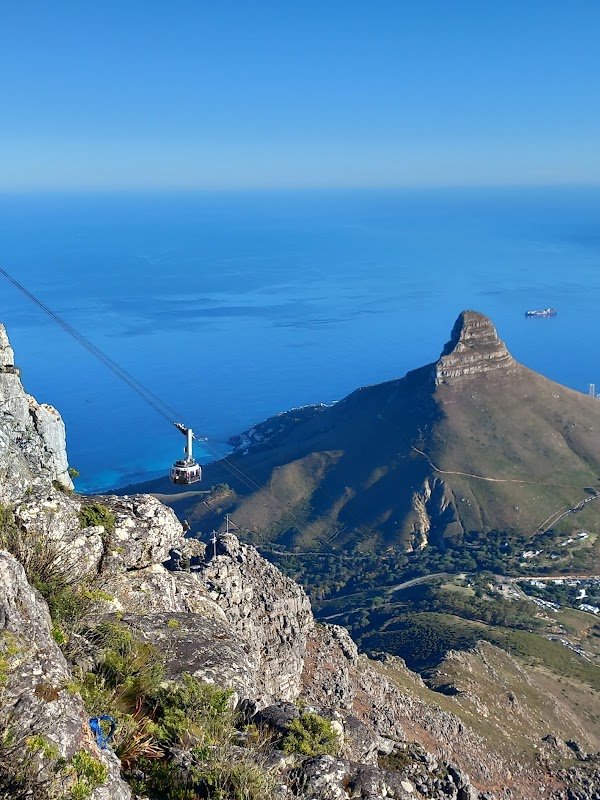Citrusdal Open Garden Festival: A Practical Adventure in Western Cape’s Botanical Heart
Explore the Citrusdal Open Garden Festival, where curated gardens and rugged trails meet the wild energy of the Western Cape’s Olifants River Valley. This guide prepares you for a moderately challenging hike across diverse landscapes, blending vivid natural beauty with practical tips for a memorable adventure.
Wear Sturdy Footwear
Paths vary from smooth garden walks to rocky dirt trails, so shoes with good grip and ankle support will keep you sure-footed.
Carry Sufficient Water
Water sources are scarce on the route; pack at least 1.5 liters per person to stay hydrated, especially in warmer months.
Start Early to Avoid Heat
Begin your hike in the morning when temperatures are cooler and lighting highlights the garden colors at their best.
Dress in Layers
Weather changes quickly; wear breathable base layers plus a windbreaker or light jacket to adapt to sun, breeze, or sudden chill.
Citrusdal Open Garden Festival: A Practical Adventure in Western Cape’s Botanical Heart
The Citrusdal Open Garden Festival invites outdoor enthusiasts and nature lovers to explore a diverse stretch of curated gardens and natural landscapes in the heart of the Western Cape. Spread over several kilometers, this active experience combines leisurely garden strolls with more rugged hikes that engage you with the region’s unique flora and terrain.
Set amidst the Olifants River Valley, the festival provides more than just floral displays—expect to traverse different types of paths, from gentle gravel trails to uneven dirt tracks that command thoughtful footwork. With route distances varying from 3 to 8 kilometers and an elevation gain peaking around 250 meters, the terrain offers a moderate challenge for casual walkers and seasoned hikers alike. Trees, shrubs, and flowers aren’t static backdrops here; they move with the breeze, rustle with a purposeful energy, and frame panoramic views that sparkle under the Western Cape sun.
The gardens themselves bring the landscape alive—citrus orchards stand alongside indigenous fynbos, each plant seeming to extend an invitation to reach out and engage. Streams appearing along some paths dare you to pause and reflect while birdsong punctuates the silence, reminding you that you’re sharing this space.
Planning your visit carefully will enhance your experience. Arrive in the morning hours to catch the gardens in soft light and avoid midday heat. Pack sturdy footwear with solid grip as paths can be loose or rocky. Hydration is critical; water sources along the route are scarce, so carry enough to stay fully stocked. Weather can shift quickly; layered clothing prepares you for sun, wind, or a sudden chill.
The festival is best enjoyed in spring (August to October), when wildflowers paint the hillsides and pollinators are busy at work. Autumn months offer cooler hikes and golden light, but be aware that summer can push highs beyond 30°C, demanding more caution and sun protection.
The Citrusdal Open Garden Festival is an opportunity to engage directly with nature that is fierce in its own right—plants resist, slopes climb with determined effort, and the landscape invites respect and curiosity rather than conquest. Whether you come for the sights or the challenge, be ready to listen, observe, and move thoughtfully through this intensely alive part of the Western Cape.
Nearby Trips
All Adventures
Boat Charters
Water Activities
Adventures near Citrusdal
Discover the unique and memorable adventures that make Citrusdal special.
Frequently Asked Questions
Are there guided tours available during the festival?
Yes, some gardens offer guided tours on select days providing insights into native plants and garden design, enhancing your understanding of the area's flora.
What is the accessibility like for families with children or elderly visitors?
Shorter routes feature gentle, well-maintained paths suitable for families and elderly visitors, though steeper garden areas may require caution and good mobility.
Can I bring pets to the festival?
Pets are generally not permitted on most garden trails to protect sensitive plants and local wildlife. Check specific venue policies before planning to bring animals.
What local wildlife might I see along the trails?
Keep an eye out for the Cape sugarbird, sunbirds busy among flowers, and Cape grysbok deer that occasionally make appearances in quieter spots.
Is parking available near the main festival sites?
Yes, several gardens provide parking nearby, but spaces can fill quickly during peak times—arriving early helps secure a spot.
Are there any special events or workshops during the festival?
Workshops on sustainable gardening and indigenous planting often run alongside the festival, offering practical knowledge relevant to local ecology.
Recommended Gear
Hiking Shoes with Good Traction
Protects feet and ankles on diverse terrain, providing stability on rocky and uneven paths.
Hydration Pack or Water Bottles
Ensures you maintain hydration since natural water sources are rare along the festival routes.
Sun Hat and Sunscreen
Necessities for sun protection during exposed segments of the trail under the strong Western Cape sun.
Light Windbreaker or Layered Clothing
Allows adjustment for changing temperatures and protects against brisk breezes or unexpected showers.
Local Insights
Hidden Gems
- "The secluded viewpoint above Lemon Tree Garden provides panoramic views over the Olifants River Valley, often missed by casual visitors."
- "A lesser-known native aloe grove blooms spectacularly in late spring, showing off the region’s unique succulent flora."
Wildlife
- "Cape sugarbird"
- "Sunbirds"
- "Cape grysbok"
- "Various fynbos butterflies"
History
"Citrusdal’s gardens blend indigenous plant heritage with commercial citrus farming history, reflecting the region’s longstanding relationship with the land."

